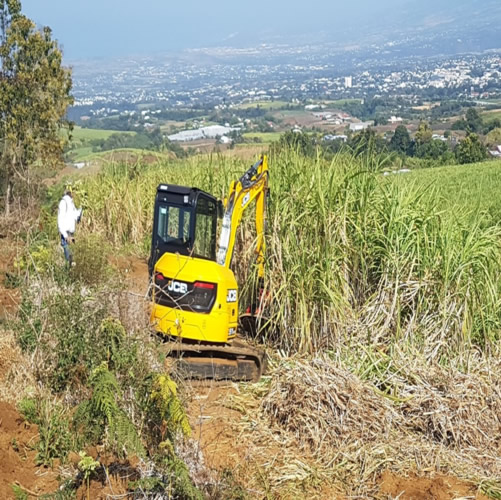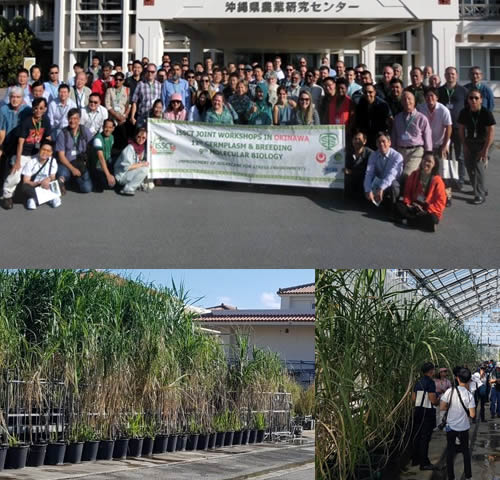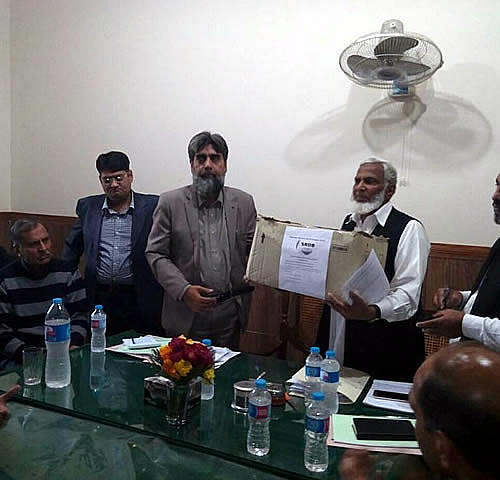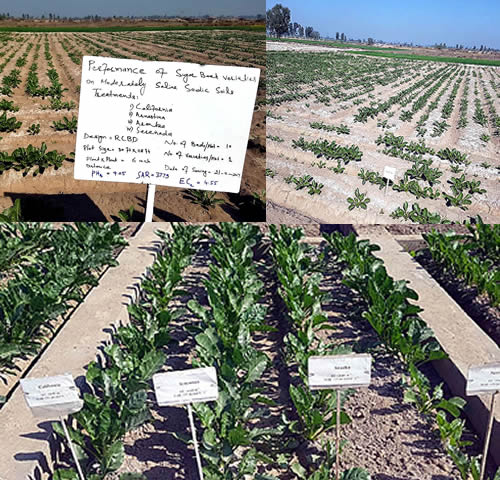Agenda Points:
- Inauguration: Dr. Jack C. Comstock
- Welcome address: Dr. Abid Mahmood. DG (Research) AARI, Faisalabad
- Introductory note: Dr. Shahid Afghan. Acting CEO, SRDB (Punjab)
- Induction of Desired Characteristics in Sugarcane Plant through Breeding Techniques: Dr. Naeem Ahmad. Director, SRI, Faisalabad
- R and D Activities at Fatima Sugar Research and Development Center (FSRDC): Dr. Syed Zia ul Hussnain
- R and D Activities at SSRI for Sugarcane improvement: Mr. Aamir Shahzad
- Sugarcane Breeding at Murree: Mr. Farooq Ahmad, ARO, SRI, Faisalabad
- Sugarcane Variety Development Program at SCRI, Mardan: Dr. Muhammad Tahir
- Sugarcane Varietal situation in Sindh and role of NSTHRI for Development of new Varieties: Mr. Riaz Noor Panhwar
- R & D Activities on Sugarcane at NIA, Tandojam: Mr. Muhammad Tahir Khan
- Seedling; A Vital Contribution in Varietal Development Program at SRI, Faisalabad: Ijaz Tabassum, SRI, Faisalabad
- Combined use of Distillery Spent wash and Chemical Fertilizers in Sugarcane: Mr. G. M. Kaloi
Proceedings:
- An International workshop entitled “R & D activities on sugarcane plant improvement” was organized on August 09, 2017 in Ayub Agricultural Research Institute, Faisalabad by Sugarcane Research and Development Board. Meeting started with the recitation of Holy Quran by Mr. Hafiz Walayat Ali Khan. Objectives of the seminar was to foresee latest breeding strategies, trends and to find solutions of prevailing sugarcane development complications.
- Acting Chief Executive Officer requested Dr. Jack C. Comstock to declare the session open. Dr. Jack C. Comstock inaugurated the session and told about his 15 years of affiliation with sugarcane advancement through fuzz/clonal exchange programs, then he discussed in detail about Sugarcane variety background in Pakistan. He put light on Census of Varieties with CP germplasm as breeding strategy, Yield of released and promising varieties, Potential of clones in the pipeline and Potential impact of these varieties. Dr. Abid Mahmood asked for identifying better place in Pakistan for sugarcane breeding, Dr. Jack replied flowering and hybridization can be grown both in Murree and Thatta with restructuring the available resources, scientist employed in these stations must be facilitated with infrastructure having temperature and light control systems. Dr. Abid Mahmood ordered Muhammad Farooq ARO, Sub-station Murree, to start the breeding process within this year according to the recommendations and conclusions made by Dr. Jack on Murree visit, it was also told to Muhammad Farooq to stay herein Faisalabad to prepare budget so that the finances for breeding are released for early start of work.
- Acting Chief Executive Officer, Sugarcane research and development board presented his key note by congratulating all stake holders for record sugar production. He identified flaws in the availability of early, medium and late maturing varieties in Pakistan. He proposed sugarcane selection breeding model in which Pakistan should have at least 50000 original seedlings in the first year. He urged different research institutions to start collaboration in exchange of material before National Uniform Varietal Yield Trials (NUVYT) preferably at advance line stage with around 500 clones. It was also told that SRDB is collaborating internationally with ARS-USDA, USA, CTC Brazil, CENGICANA Guatemala, SRI, Sri Lanka and Visa-cane CIRAD France for exchange of material both in terms of fuzz and clones.
- Muhammad Naeem Director, Sugarcane Research Institute Faisalabad discussed Induction of desired characteristics in sugarcane plant through breeding techniques. He emphasized on the development of site specific varieties having pre-basic and basic seed standards. He debated the role of charapani breeding substation, Murree. Breeding methods in Murree are open pollination, hybridization, import of exotic fuzz and direct introduction. SRI Faisalabad & SSRI Jhang collectively had send 60 promising and commercial varieties to Sri Lanka for hybridization. They also have direct introduction varieties from Sri Lanka, Mauritius, Philippines and USA. Mr. Riaz Noor asked about the flowering intensity percentage of varieties at Murree and the answer was 40%.
- Zia ul Hussnain, communicated their research and development activities at Fatima Sugar Research and Development Center (FSRDC). Their research sections include Plant pathology laboratory, Soil and water testing laboratory, Biological control laboratory, Cane quality laboratory and research farms. FSRDC is depending on import of cane fuzz for its sugarcane selection breeding program. They also provide hot water treatment facility to farmers. Dr. Jack asked about the efficiency of hot water treatment, Dr. Zia answered it is good for the management of red rot, borers and provides early germination to sugarcane.
- Aamir Shahzad, Research officer, Shakarganj Sugar Research Institute, SSRI Jhang elaborated the functioning of institute, its history, their sections of research, advancement made with time, list of pipeline varieties with general characteristics, selection breeding program with import of fuzz from multiple countries. They are also undertaking NUVYT trails to assess varietal performance. Their institute also have pathology lab, bio control lab for the rearing of Trichogramma and Chrysoperla species, bio compost facility, tissues culture lab and soil and water advisory services. Dr. Jack asked about the exchange of material with other institutes, Mr. Aamir said they exchange their material with SRI Faisalabad, FSRDC Muzafargarh and PARC Thatta.
- Muhammad Farooq, ARO SRI substation Murree, started his presentation with the objective to conduct sugarcane breeding program for developing promising clones/varieties that suit best to various agro-climatic regions of Pakistan. He discussed in detail about the process of breeding and showed results of previous year and asked about financial assistance from SRDB is development of substation so that breeding may take place in controlled condition so that maximum germination in terms of seed and flowering is achieved. Dr. Shahid Afghan asked about difference between tunnel and control methods of breeding and the answer was that both processes have same results. Dr. Jack asked Mr. Farooq to contact him after workshop to help him in making of budget for breeding accessories.
- Muhammad Tahir, Senior research officer, SCRI Mardan, argued sugarcane varietal program at Khyber Pakhtunkhwa. He told that they import fuzz from USA, South Africa and Australia for their breeding program and it has limitations that is why they need to develop their own breeding program. While developing local breeding station they will have local viable adequate fuzz. He said he is willing to renovate Sugarcane Breeding Station, Jabban Dargai. Dr. Shahid Afghan asked about the source of fuzz for the development of Bannu varieties and requested to follow varietal nomenclature while naming varieties.
- Riaz Noor Panhwar, Senior Scientific officer, PARC, Makli, Thatta presented Sugarcane Varietal Situation in Sindh and Role of NSTHRI in New Variety Development. He said currently 205 sugarcane varieties/genotypes are being maintained in germplasm for flowering behavior study and synchronization. 695.9 g fuzz (true seed) has been collected from different sugarcane varieties/genotypes. 7150 new sugarcane clones were developed through local fuzz. He explained that two new varieties have been approved by PARC namely Thatta-2109 and Thatta-326 and many other promising varieties are in pipeline. Dr. Shahid Afghan said you must be more explanatory while conducting and describing trails as 10000 and 25000 seedlings are giving same number of clones. Secondly, he pointed out that do not take brix data in September rather is must be taken in November. Thirdly, he said triton is very old variety and it must be discouraged for multiplication and breeding.
- Muhammad Tahir Khan, Nuclear Institute of Agriculture Tandojam, said plant improvement is need of the hour because of conventional breeding, non-flowering or sporadic flowering with poor seed setting under natural conditions, if seed setting occurs, germination is very poor and mortality rate is very high and Lack of facilities for induction of flowering by artificial means and these limitations can be resolved by biotechnology, exotic germplasm evaluation and mutagenesis. They are also undergoing callus culture for genetic diversity and crosses were obtained from Sri lanka. They are using RAPD (Randomly Amplified Polymorphic DNA) Primers for genetic studies. Their future directions for research are Sugarcane white leaf disease, enhancement of stress tolerance in sugarcane in adverse climatic conditions and exploration of sugarcane genome and development of promising molecular markers for sugarcane breeding. Dr. jack asked about the process and efficiency of soma clonal variations and Dr. Shahid Afghan suggested him about the inefficiency of RAPD markets and asked him to use latest markers for genetic studies.
- Ijaz Tabassum, Assistant Botanist, SRI Faisalabad presented his views on Seedling; A Vital Contribution in Varietal Development Program. He found flaws or lack of facilities in breeding at Faisalabad as an independent laboratory, freezer -20C, germination test facility, mist irrigation system, man power and healthy environment is required. He shared the data of seedlings and advance clones attained as the result of breeding program. Performance of direct introduction varieties from USA and Philippines.
- G. M. Kaloi, Senior Scientific officer, NSTHRI, PARC, Thatta was the last presenter of International workshop. His title was Combine use of distillery spent wash and chemical fertilizers in sugarcane. He gave the introduction of spent wash and its potential in agriculture and sugarcane in particular. He studies various combination and treatments of spent wash for increasing soil properties, cane quality and yield. His field study shows that 10% spent wash + 2/3rd NP fertilizer enhanced cane yield and sugar recovery.
Vote of thanks/MOU:
Acting CEO thanked all participants for their result oriented participation and said he learnt something from every presentation. He emphasized participants to take keen interest in implementation of findings. He also thanked Dr. Jack C. Comstock for his interest in improving sugarcane pathology and breeding in Pakistan. MOU was served to all representatives of sugarcane research institutes to thoroughly read and to give their suggestions within 15 days after workshop for approval so that exchange of material between research institutes gets progress and efficient sugarcane breeding is started.
Recommendations:
Recommendations formulated by Dr. Jack C. Comstock was shared with all participants at the end of workshop:
- Continue to support foreign training of young Pakistani scientists
- Expand disease-free seed cane as rapidly as possible
- Initiate National Crossing and Variety Development Program in Pakistan in cooperation with SRDB (Punjab)
- Support for import of cane fuzz and germplasm for research institutes of Punjab
- Organize selection program to exchange promising clones of research institutes
- Foster collaboration and cooperation both nationally and internationally
![]()





